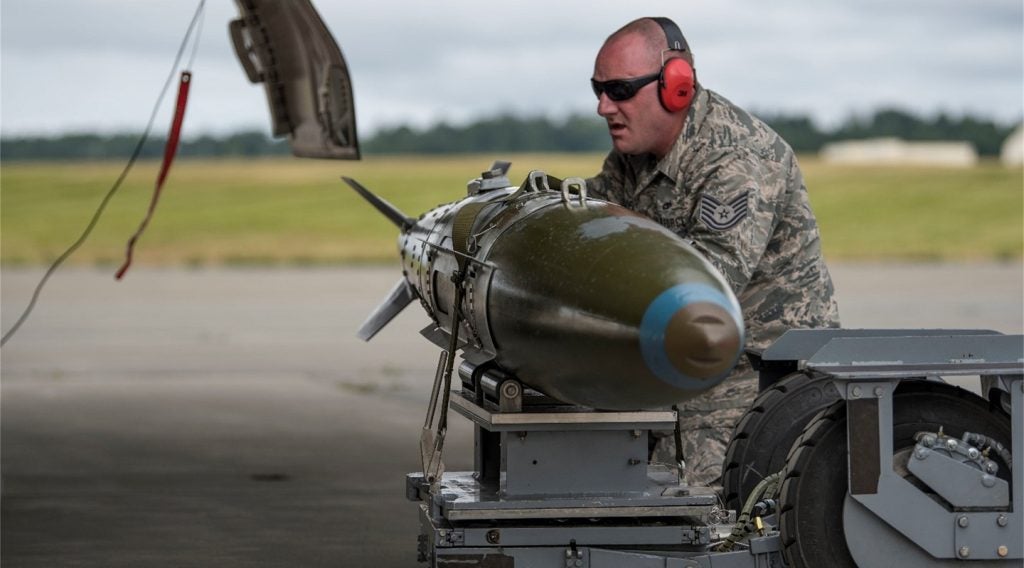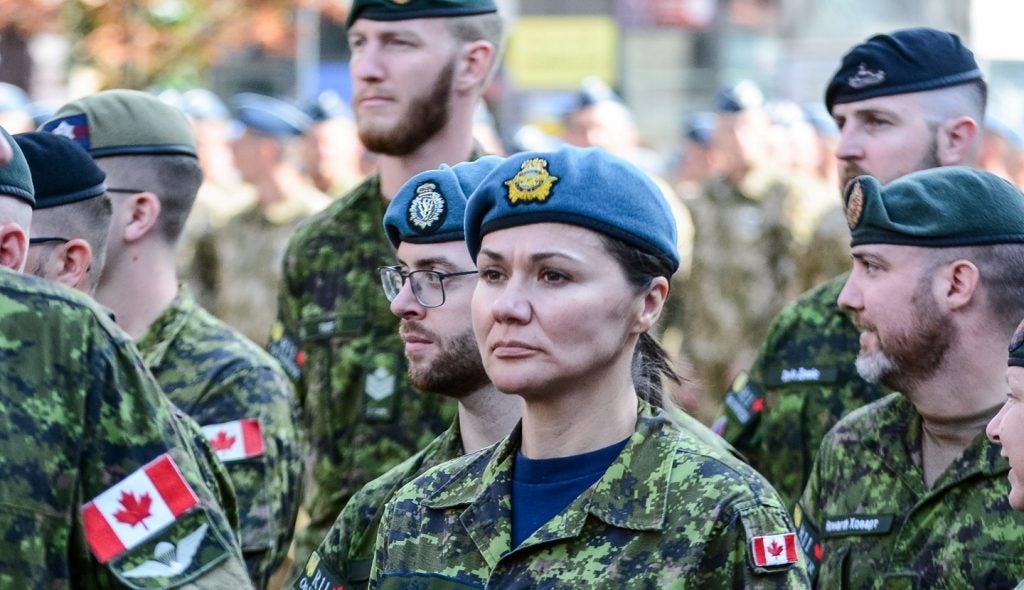
During the presentation, Brown said the USAF “can’t predict the future” but can shape it, adding that the air force had a window of opportunity to accelerate changes.
‘Accelerate Change or Lose’ includes Brown’s expectations for what will be needed from the USAF going forward as well as topics such as USAF culture, doctrine and the threats and adversaries facing the US.
In the document, Brown says: “Our Air Force must accelerate change to control and exploit the air domain to the standard the Nation expects and requires from us.
“If we don’t change – if we fail to adapt – we risk losing the certainty with which we have defended our national interests for decades. We risk losing a high-end fight. We risk losing quality airmen, our credibility, and our ability to secure our future.”
The document warns that if the USAF fails to adapt to “changes in the strategic environment”, it risks losing in a future high-end fight, however, the document adds that for the USAF to succeed it must increase the pace of change to “remain the most dominant and respected Air Force in the world.”
Under a section titled ‘Good Enough Today Will Fail Tomorrow’ Brown says that the USAF’s past successes do not guarantee its future performance.
How well do you really know your competitors?
Access the most comprehensive Company Profiles on the market, powered by GlobalData. Save hours of research. Gain competitive edge.

Thank you!
Your download email will arrive shortly
Not ready to buy yet? Download a free sample
We are confident about the unique quality of our Company Profiles. However, we want you to make the most beneficial decision for your business, so we offer a free sample that you can download by submitting the below form
By GlobalDataBrown adds: “Absent change, our presumed advantage will continue to erode, and the U.S. Air Force will not be adequately prepared for the warfighting challenges in contested environments.
“Absent change, our Nation will assume increasing risks to our mission and our forces.”
Brown said that requirements for capabilities that underpinned the USAF’s success were developed in the decade most of the air force’s senior leaders joined the service, adding: “Since then, much has changed.”
Brown added: “Unlike the past, much of the emerging technologies that will determine our future are no longer created or funded by the Department of Defense.”
In the document, Brown explains that the USAF must contribute to the US Joint Warfighting Concept and deliver capabilities into the hands of warfighters “faster—through innovation, experimentation and rapid prototyping, and a collaborative approach with our service and industry teammates.”
A high-stakes game
The document warns that likely future budget pressures ‘require the most difficult force structure decisions in generations’ but Brown adds that these decisions cannot be shied away from.
Brown adds: “The US Air Force already faces increasing budget pressure based on growing costs of sustainment for current and ageing force structure, continuous combat operations, and long-deferred modernisation.
“While previous decisions were made with the best intentions reflecting perceived needs at the time, in aggregate, they do not deliver the outcomes we need today due to the rapidly changing elements of the competitions with China and Russia.”
Learning from prior force recapitalisations and modernisation plans, the document says the USAF must “frame decisions with an enterprise-wide perspective” and have hard conversations about changes that need to be made.
“If the US Air Force fails to adapt fast enough, wargaming suggests mission failure and unacceptable risks to the Joint Force.
“The rules-based international order so many have fought to defend may disintegrate and our national interests will be significantly challenged. Unless we accelerate the changes we need, the US Air Force will be ill-prepared to compete, deter, and win. Urgent actions are required now to secure the US Air Force’s continued ability to deliver global effects on strategically-relevant timelines,” Brown’s document reads.
Demonstrating “strength, adaptability, and resilience” to near-peer adversaries, such as China and Russia, is seen as necessary to deter a future armed conflict. However, the document adds that should deterrence fail, “the US Air Force must be prepared to fight in defence of America’s interests—and win.”
Brown’s document concludes: “If we are bold enough, we can shape our future proactively vice reactively after experiencing catastrophic loss and potential defeat.
“To do so, we must accelerate change now, while we have a unique—but limited—window of opportunity.







